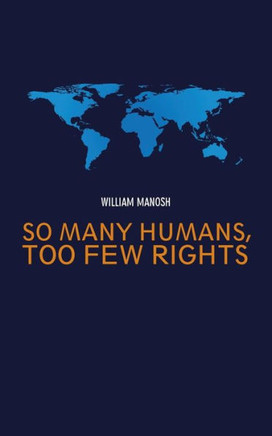
AuthorHouse
So Many Humans, Too Few Rights
Product Code:
9781546232797
ISBN13:
9781546232797
Condition:
New
$16.46

So Many Humans, Too Few Rights
$16.46
This book examines a very important period of recent American foreign international relations history. The postCold War period, 19892004, is scrutinized very closely with several key questions in mind. What has been gained by the United States by winning the Cold War? First and foremost, many peoplebesides Americansand quite possibly the academic world, the young, and the elderly may be wondering what the answer to this question really is, or is there even an answer? Secondly, I asked myself, What better way to judge the security of a nation than by its record regarding human rights? Thirdly, can the US Congress be influenced to make a policy for the president to enter conflicts around the world in the name of human rights? How much does a countrys human rights record matter to foreign policy makers before the United States takes a firm hand with that country? Why do some countries get away with blatant human rights abuses, while others remain unscathed? How do human rights abuses become congressional resolutions and possibly implicate international relations positively or negatively around the world? If you are interested in any of these questions, you have picked up the right book. By utilizing research methods utilized by political scientists all around the world, I was able to compile fifteen years worth of detailed history into an easy-to-read book that will offer some insights into how nongovernmental organizations can influence the United States that something has to be done, or do nothing at all ever, to put off the resolution against the offending country until the next or a subsequent congressional session. It is all here for you to read. I hope you get as much out of this book as I have put into it. I plan to do a similar title that will explore the congress, NGOs, and international foreign policy implications further as the turn of the century has watched the Middle East practically implode, as I dare say, much a result of the end of the Cold War, which destabilized the entire region mostly attributed to human rights abuses and, of course, many other factors.
| Author: William Manosh |
| Publisher: AuthorHouse |
| Publication Date: Mar 27, 2018 |
| Number of Pages: 110 pages |
| Language: English |
| Binding: Paperback/Education |
| ISBN-10: 1546232796 |
| ISBN-13: 9781546232797 |





